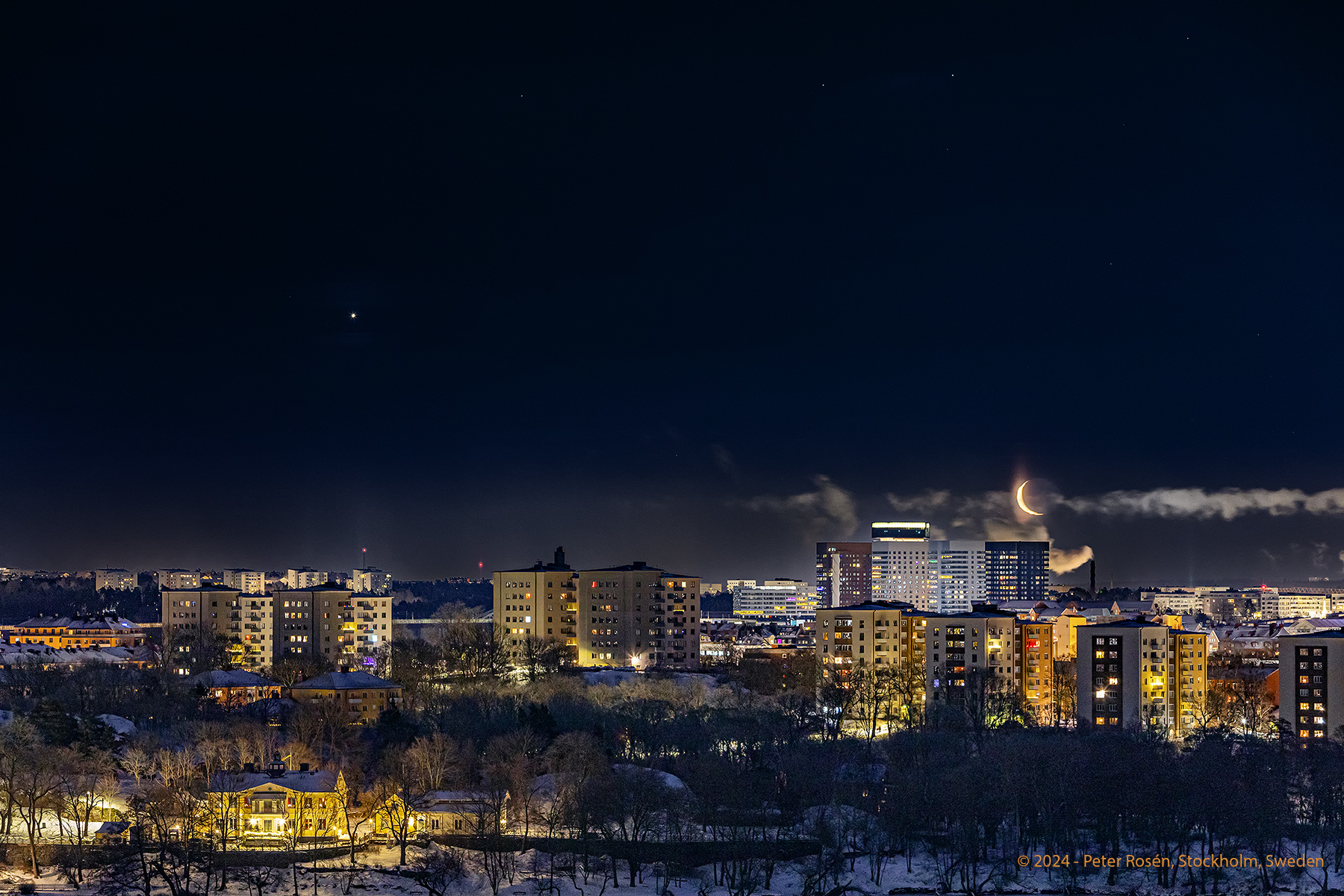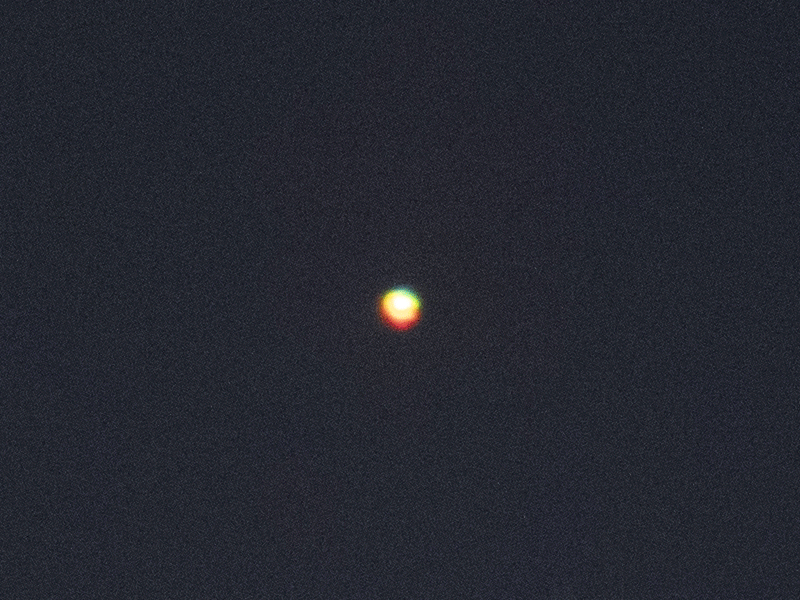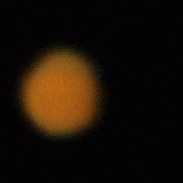Light, as we perceive it, is an illusion. Without even considering all the light we cannot see, the white light we experience is a combination of endless shades that we categorize as seven colors. Occasionally, atmospheric phenomena can help free the colors, giving blue skies, red sunsets, and rainbows. And, occasionally, a green flash.
This is usually associated with the setting or rising Sun, but it can happen with several light sources. And that includes planets. A photographer has captured Venus producing an incredible flash while taking a routine photograph of the planet as part of a wider skyscape.

The crescent Moon (and earthshine) as well as Venus over Stockholm.
Image courtesy of Peter Rosén
“In fact my plan was to photograph a panorama of Venus and the Moon rising over Stockholm skyline early in the morning of the 8th of January, so I was ready with my camera before 7 AM (local time),” Peter Rosén told IFLScience. “It was well worth it as there was a beautiful Moon crescent showing some earthshine and higher up in the sky and on the left side, a very bright Venus.”
The composition is really pretty. But the million-dollar shot was to come later. Rosén changed lenses to try and snap some higher-magnification views of Venus in quick succession. And in those multiple photograms of the Morning Star, the green flash was hiding.

An animation showing the green flash from Venus.
Image courtesy of Peter Rosén
“I did not see anything unexpected until I scrutinized the images on the computer screen and saw this very distinct green flash,” Rosén told IFLScience. “I immediately knew what it was as I had captured a green and slightly bluish flash on Mars in 2018.”
If snapping green flashes on Venus and Mars were not enough, the skilled photographer has also captured the better-known one on the Sun. It usually occurs when the Sun is low on the horizon and the conditions are right. But the conditions for the flashes are not always the same.

The green/blue flash of Mars as the atmosphere makes a pinch mirage.
Image courtesy of Peter Rosén
The general principle is that the light of the Sun is refracted, separating the colors. This is what happens normally in the atmosphere, scattering blue light and giving the sky its azure hue. In the green flash it’s that color that is sent towards us. When it comes to conditions, in some cases, you need clean air with a surface warmer than the air above it. In others, you need hazy air. For others still, you need a mirage situation, where the Sun appears pinched.
And it might be possible to get the green light without even seeing the green. Research suggests that a double hit from infrared photons on the same retina cells might create the impression of a bright neon green.
Source Link: Green Flash Spotted Lighting Up Venus In Stunning Photo Series